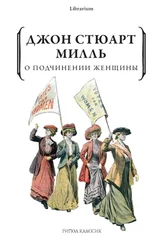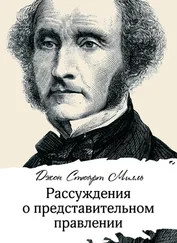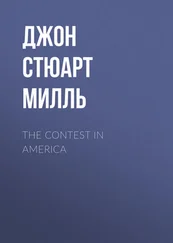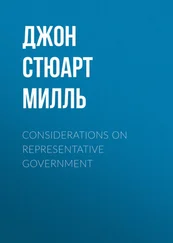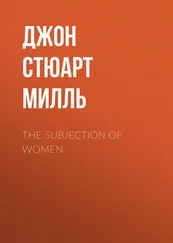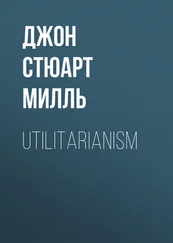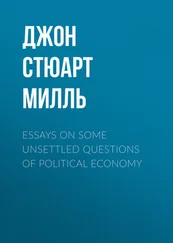Джон Милль - Autobiography
Здесь есть возможность читать онлайн «Джон Милль - Autobiography» — ознакомительный отрывок электронной книги совершенно бесплатно, а после прочтения отрывка купить полную версию. В некоторых случаях можно слушать аудио, скачать через торрент в формате fb2 и присутствует краткое содержание. Жанр: Философия, literature_19, foreign_antique, foreign_prose, на английском языке. Описание произведения, (предисловие) а так же отзывы посетителей доступны на портале библиотеки ЛибКат.
- Название:Autobiography
- Автор:
- Жанр:
- Год:неизвестен
- ISBN:нет данных
- Рейтинг книги:4 / 5. Голосов: 1
-
Избранное:Добавить в избранное
- Отзывы:
-
Ваша оценка:
- 80
- 1
- 2
- 3
- 4
- 5
Autobiography: краткое содержание, описание и аннотация
Предлагаем к чтению аннотацию, описание, краткое содержание или предисловие (зависит от того, что написал сам автор книги «Autobiography»). Если вы не нашли необходимую информацию о книге — напишите в комментариях, мы постараемся отыскать её.
Autobiography — читать онлайн ознакомительный отрывок
Ниже представлен текст книги, разбитый по страницам. Система сохранения места последней прочитанной страницы, позволяет с удобством читать онлайн бесплатно книгу «Autobiography», без необходимости каждый раз заново искать на чём Вы остановились. Поставьте закладку, и сможете в любой момент перейти на страницу, на которой закончили чтение.
Интервал:
Закладка:
This first introduction to the highest order of mountain scenery made the deepest impression on me, and gave a colour to my tastes through life. In October we proceeded by the beautiful mountain route of Castres and St. Pons, from Toulouse to Montpellier, in which last neighbourhood Sir Samuel had just bought the estate of Restincličre, near the foot of the singular mountain of St. Loup. During this residence in France I acquired a familiar knowledge of the French language, and acquaintance with the ordinary French literature; I took lessons in various bodily exercises, in none of which, however, I made any proficiency; and at Montpellier I attended the excellent winter courses of lectures at the Faculté des Sciences, those of M. Anglada on chemistry, of M. Provençal on zoology, and of a very accomplished representative of the eighteenth century metaphysics, M. Gergonne, on logic, under the name of Philosophy of the Sciences. I also went through a course of the higher mathematics under the private tuition of M. Lenthéric, a professor at the Lycée of Montpellier. But the greatest, perhaps, of the many advantages which I owed to this episode in my education, was that of having breathed for a whole year, the free and genial atmosphere of Continental life. This advantage was not the less real though I could not then estimate, nor even consciously feel it. Having so little experience of English life, and the few people I knew being mostly such as had public objects, of a large and personally disinterested kind, at heart, I was ignorant of the low moral tone of what, in England, is called society; the habit of, not indeed professing, but taking for granted in every mode of implication, that conduct is of course always directed towards low and petty objects; the absence of high feelings which manifests itself by sneering depreciation of all demonstrations of them, and by general abstinence (except among a few of the stricter religionists) from professing any high principles of action at all, except in those preordained cases in which such profession is put on as part of the costume and formalities of the occasion. I could not then know or estimate the difference between this manner of existence, and that of a people like the French, whose faults, if equally real, are at all events different; among whom sentiments, which by comparison at least may be called elevated, are the current coin of human intercourse, both in books and in private life; and though often evaporating in profession, are yet kept alive in the nation at large by constant exercise, and stimulated by sympathy, so as to form a living and active part of the existence of great numbers of persons, and to be recognised and understood by all. Neither could I then appreciate the general culture of the understanding, which results from the habitual exercise of the feelings, and is thus carried down into the most uneducated classes of several countries on the Continent, in a degree not equalled in England among the so-called educated, except where an unusual tenderness of conscience leads to a habitual exercise of the intellect on questions of right and wrong. I did not know the way in which, among the ordinary English, the absence of interest in things of an unselfish kind, except occasionally in a special thing here and there, and the habit of not speaking to others, nor much even to themselves, about the things in which they do feel interest, causes both their feelings and their intellectual faculties to remain undeveloped, or to develop themselves only in some single and very limited direction; reducing them, considered as spiritual beings, to a kind of negative existence. All these things I did not perceive till long afterwards; but I even then felt, though without stating it clearly to myself, the contrast between the frank sociability and amiability of French personal intercourse, and the English mode of existence, in which everybody acts as if everybody else (with few, or no exceptions) was either an enemy or a bore. In France, it is true, the bad as well as the good points, both of individual and of national character, come more to the surface, and break out more fearlessly in ordinary intercourse, than in England: but the general habit of the people is to show, as well as to expect, friendly feeling in every one towards every other, wherever there is not some positive cause for the opposite. In England it is only of the best bred people, in the upper or upper middle ranks, that anything like this can be said.
In my way through Paris, both going and returning, I passed some time in the house of M. Say, the eminent political economist, who was a friend and correspondent of my father, having become acquainted with him on a visit to England a year or two after the Peace. He was a man of the later period of the French Revolution, a fine specimen of the best kind of French Republican, one of those who had never bent the knee to Bonaparte though courted by him to do so; a truly upright, brave, and enlightened man. He lived a quiet and studious life, made happy by warm affections, public and private. He was acquainted with many of the chiefs of the Liberal party, and I saw various noteworthy persons while staying at this house; among whom I have pleasure in the recollection of having once seen Saint-Simon, not yet the founder either of a philosophy or a religion, and considered only as a clever original. The chief fruit which I carried away from the society I saw, was a strong and permanent interest in Continental Liberalism, of which I ever afterwards kept myself au courant , as much as of English politics: a thing not at all usual in those days with Englishmen, and which had a very salutary influence on my development, keeping me free from the error always prevalent in England – and from which even my father, with all his superiority to prejudice, was not exempt – of judging universal questions by a merely English standard. After passing a few weeks at Caen with an old friend of my father's, I returned to England in July, 1821 and my education resumed its ordinary course.
CHAPTER III
LAST STAGE OF EDUCATION, AND FIRST OF SELF-EDUCATION
For the first year or two after my visit to France, I continued my old studies, with the addition of some new ones. When I returned, my father was just finishing for the press his Elements of Political Economy , and he made me perform an exercise on the manuscript, which Mr. Bentham practised on all his own writings, making what he called "marginal contents"; a short abstract of every paragraph, to enable the writer more easily to judge of, and improve, the order of the ideas, and the general character of the exposition. Soon after, my father put into my hands Condillac's Traité des Sensations , and the logical and metaphysical volumes of his Cours d'Etudes ; the first (notwithstanding the superficial resemblance between Condillac's psychological system and my father's) quite as much for a warning as for an example. I am not sure whether it was in this winter or the next that I first read a history of the French Revolution. I learnt with astonishment that the principles of democracy, then apparently in so insignificant and hopeless a minority everywhere in Europe, had borne all before them in France thirty years earlier, and had been the creed of the nation. As may be supposed from this, I had previously a very vague idea of that great commotion. I knew only that the French had thrown off the absolute monarchy of Louis XIV. and XV., had put the King and Queen to death, guillotined many persons, one of whom was Lavoisier, and had ultimately fallen under the despotism of Bonaparte. From this time, as was natural, the subject took an immense hold of my feelings. It allied itself with all my juvenile aspirations to the character of a democratic champion. What had happened so lately, seemed as if it might easily happen again: and the most transcendent glory I was capable of conceiving, was that of figuring, successful or unsuccessful, as a Girondist in an English Convention.
Читать дальшеИнтервал:
Закладка:
Похожие книги на «Autobiography»
Представляем Вашему вниманию похожие книги на «Autobiography» списком для выбора. Мы отобрали схожую по названию и смыслу литературу в надежде предоставить читателям больше вариантов отыскать новые, интересные, ещё непрочитанные произведения.
Обсуждение, отзывы о книге «Autobiography» и просто собственные мнения читателей. Оставьте ваши комментарии, напишите, что Вы думаете о произведении, его смысле или главных героях. Укажите что конкретно понравилось, а что нет, и почему Вы так считаете.


